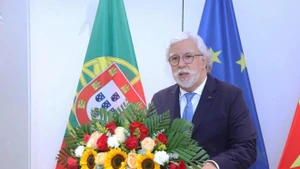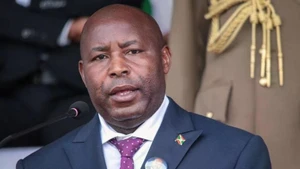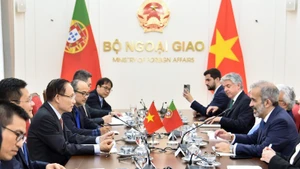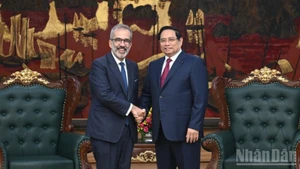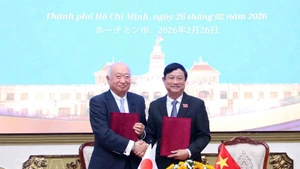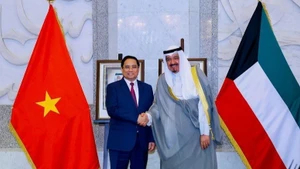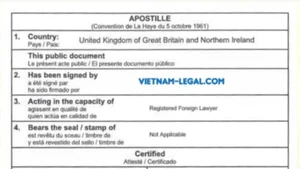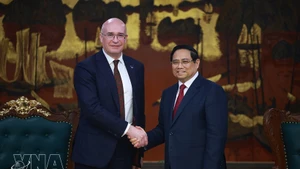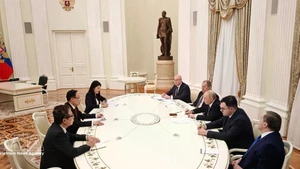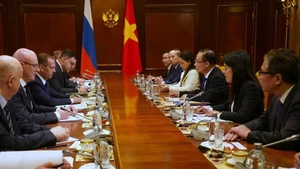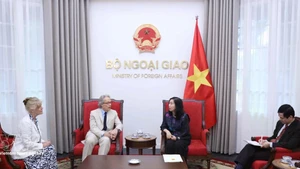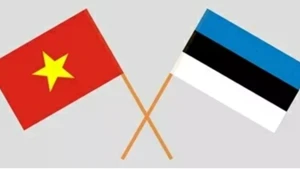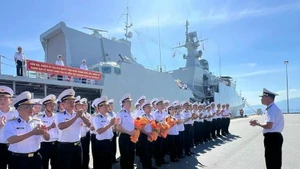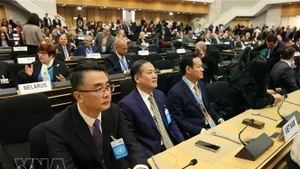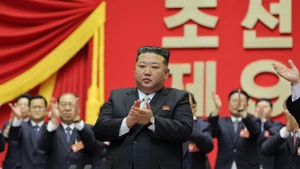Welcoming PM Chinh, PM Albanese said the visit is of significance and is a milestone in the bilateral ties after the two countries set up their diplomatic relations 50 years ago.
He hailed the Vietnamese delegation’s positive contributions to the success of the ASEAN – Australia Special Summit held in Melbourne on March 5 and 6, while recalling his impressions of his official trip to Vietnam and his talks with PM Chinh in June 2023.
PM Chinh, for his part, conveyed Party General Secretary Nguyen Phu Trong’s regards to PM Albanese, and congratulated Australia on the successful organisation of the special summit.
He believed that under the leadership of the Labour Party-led government and PM Albanese, Australia will continue to reap great achievements and increasingly affirm its role and position in the region and the world.
In the spirit of sincerity and trust, the two leaders expressed their delight at the strong development of the friendship and Strategic Partnership between the two countries and agreed to elevate the ties to a Comprehensive Strategic Partnership, while discussing and reaching consensus on close coordination to promote the bilateral cooperation to a deeper and more effective and practical way.
With a view to enhancing political and diplomatic trust, they agreed to promote exchange of delegations and contacts at high level, maintain bilateral cooperation mechanisms, and effectively realise the signed documents and prepare the action programme for 2024-2028. Besides, both nations will accelerate people-to-people exchanges, create favourable conditions for friendship associations to organise cultural, sport and charity events, and foster local cooperation and partnership in the fields of gender equality and protection of vulnerable groups.
Aiming for more inclusive, practical and effective economic, trade and investment cooperation, the two leaders were unanimous to facilitate market opening for each other’s agricultural products towards diversifying their supply chains.
PM Chinh asked Australia to create favourable conditions for Vietnamese enterprises to do business and invest in the country, while welcoming Australia’s investments, especially high-quality ones with state-of-the-art technologies.
The two leaders consented to effectively carry out the Memorandum of Understanding (MoU) on science-technology and innovation, under which Australia will help Vietnamese small and medium-sized enterprises with technology transfer, and Australian tech firms cooperate with Vietnamese innovation centres and semiconductor producers.
They also agreed to strengthen cultural exchanges, promote cooperation in vocational training, increase the number of scholarships for Vietnamese students, and open branches of Australian universities in Vietnam.
The two nations will work together to promote green hydrogen production in Vietnam and join hands in climate change response. Australia will help the Southeast Asian country to realise its net-zero target by 2050.
Along with the existing sound cooperation, the two sides agreed to promote the signing of a cooperative agreement on tourism, making them the top travel markets of each other. They will soon implement an MoU on supporting Vietnamese citizens who work in the agricultural sector in Australia.
PM Chinh proposed the Australian Government create favourable conditions for the Vietnamese community in Australia.
Touching on security-defence cooperation, they concurred to effectively carry out the Peacekeeping Partnership Arrangement, and continue close cooperation in education and training, prevention of cross-border crimes, information and experience sharing between the two armies' units, post-war recovery and national database building.
Discussing regional and international issues, the two PMs agreed to back each other and work closely at regional and international forums, especially the UN, ASEAN and ASEAN-led mechanisms.
PM Chinh spoke highly of Australia’s stance that supports the respect for international law in the region and settlement of disputes in the East Sea/South China Sea via peaceful means in accordance with the international law, especially the 1982 UN Convention on the Law of the Sea (UNCLOS).

